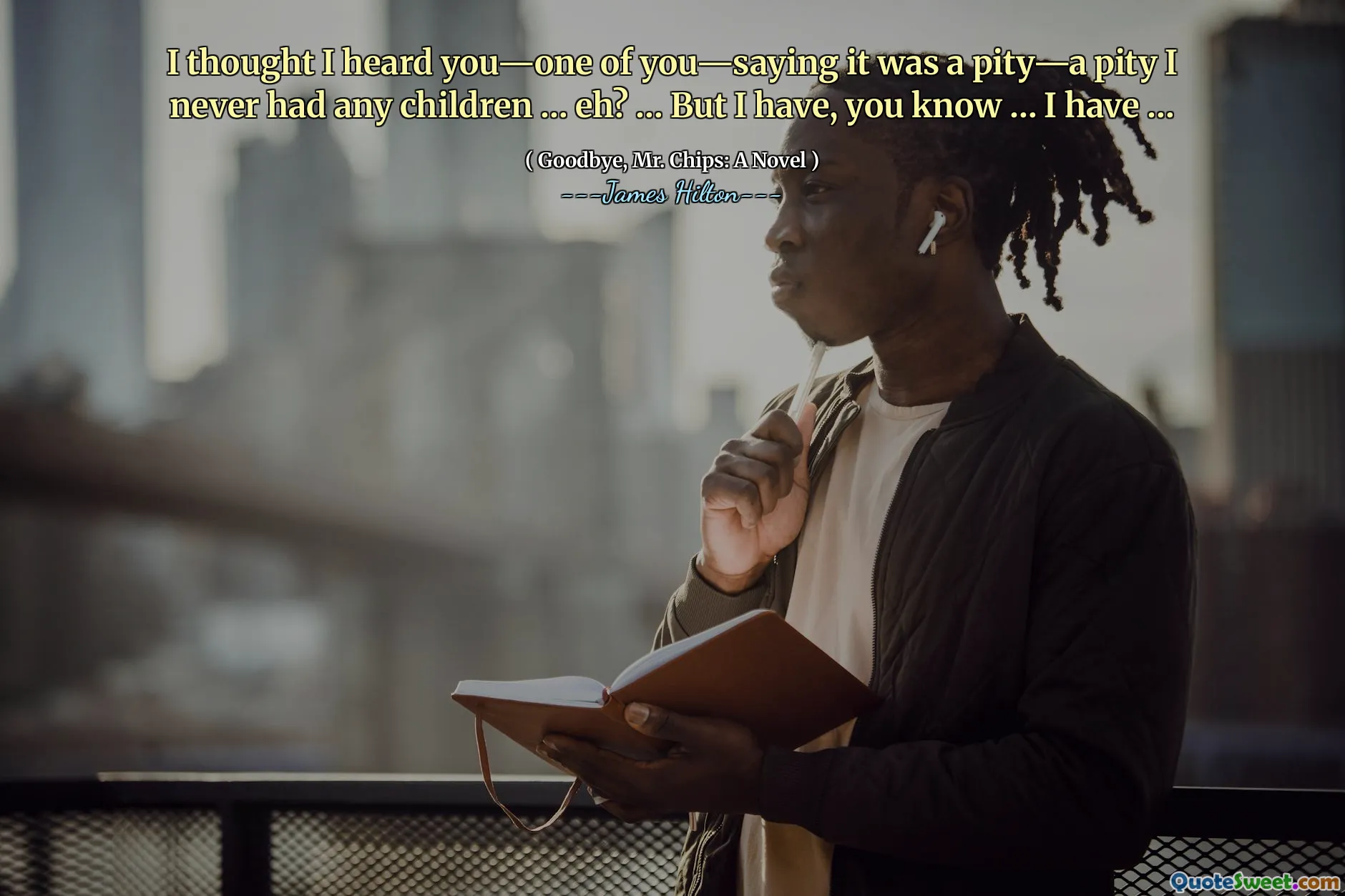
I thought I heard you—one of you—saying it was a pity—a pity I never had any children … eh? … But I have, you know … I have …
This quote from 'Goodbye, Mr. Chips' encapsulates themes of nostalgia, regret, and the quiet fulfillment found in reflection. Chips appears to be quietly providing a revelation about his life—acknowledging, perhaps with a mixture of humor and wistfulness, that he has had children all along in the form of boys he has influenced and mentored. The tone suggests a subtle confession, a moment of introspection that blurs the lines between personal accomplishment and unfulfilled personal desires. It highlights how mentorship and the act of shaping young lives can serve as a surrogate for biological parenthood, filling a void of companionship and legacy.
The scene exudes poignancy, as Chips' admission resembles a quiet triumph over past regrets. His trembling voice and faint chuckle underscore a vulnerability, revealing how deeply human figures in literature—and perhaps in life—seek meaning and affirmation through their connections with others. The idea that someone might consider his role as a teacher as a form of fatherhood offers a touching perspective on what constitutes family and legacy. It invites readers to reflect on their own lives and relationships, emphasizing that fulfillment isn't solely borne from traditional milestones but also from the impact we make on others.
This moment resonates with the universal human pursuit of recognition and belonging. It reminds us that acts of kindness and guidance—no matter how small—can leave indelible marks, creating a lasting legacy, much more profound than material possessions. Chips' quiet disclosure evokes a sense of warmth and bittersweet understanding, illustrating that life’s true riches often lie in the connections we forge and the positive influences we leave behind.






